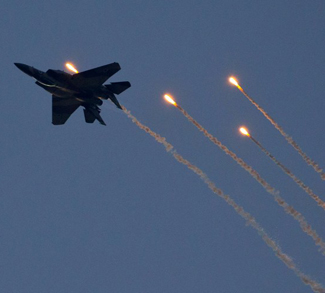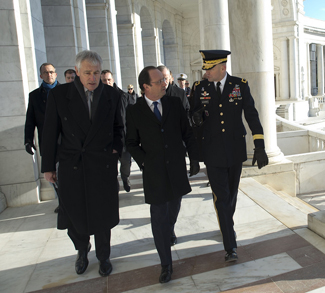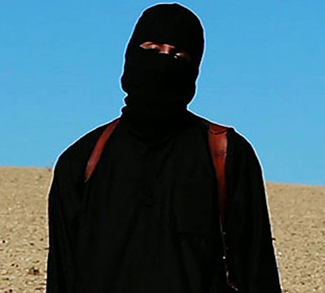Summary
For the first time since the beginning of the ‘War on Terror’, American and Pakistani forces have exchanged fire. As a result of the escalating American use of force against targets in Pakistan, the Pakistani government and military establishment has warned that they will respond with force to any incursion upon their territorial sovereignty by U.S. forces. The situation is deteriorating quickly and threatening to open up a third front for American forces in the area.
Analysis
Escalating violence in the Pakistani border region threatens to collapse the increasingly fragile U.S.-Pakistani alliance and deteriorate into a low-level war between the U.S. and Pakistan. The fragile post-Musharraf democracy in Pakistan is facing a growing and threatening insurgency in its Northwest Frontier Province region, the same area that American forces have been targeting in the past few months as the base of operations for anti-American militants in Afghanistan. The two allies have already begun to exchange fire, despite a seemingly common enemy.
Last Thursday, American and Pakistani forces exchanged fire after at the Pak-Afghan border after Pakistani forces claimed that two American helicopters violated Pakistani airspace near Khost. The American military has acknowledged the exchange of gunfire by the allies, but denied the American helicopters had entered Pakistani airspace.
Meanwhile, the same day, Pakistan’s new Prime Minister, Asif Ali Zardari, warned the Americans in a speech he delivered at the United Nations, “Just as we will not let Pakistani’s territory to be used by terrorists for attacks against our people and our neighbours, we cannot allow our territory and our sovereignty to be violated by our friends.”
The warning is only the latest in a steady escalation of tension between the two allies. On September 16th, a day after Pakistani forces first fired “warning shorts” at American helicopters, Admiral Michael Mullen, Chairman of the Joint Chiefs of Staff, made a surprise visit to Pakistan to meet with senior Pakistani officials to defuse the situation. The visit came on the heels of General Athar Abbas’, a Pakistani army spokesman, announcement that his forces’ “warning shots” were effected under new orders to the Pakistani army to open fire against American forces should the latter violate Pakistani territory or airspace. That warning, in turn, was in response to the first publicly acknowledged cross-border ground incursion by U.S. commandos in a September 3rd raid against suspected militant targets in a Pakistani village.
American attacks inside Pakistan have been occurring for years by mainly unmanned Predator drones, with the tacit approval of the Pakistani government. However, after public denials on both sides, videos of the wreckage and scraps of American missiles began to filter out of the region into mainstream media, compelling both the Bush Administration and the then Musharraf Pakistani government to admit to the cross-border strikes. The public disclosure of American attacks on Pakistani villages incensed the patriotic and nationalist Pakistani public and is considered an important factor in the revolt that eventually toppled Musharraf.
The Predator drone attacks continue, on an almost weekly basis, drawing sharp criticism from the Pakistani population and threatening the stability of the Zardari regime. Almost all Pakistanis are against the American attacks inside their territory, while a majority of Pakistanis express negative views towards the U.S. The net result is that the Pakistani based insurgency has grown in both strength and popularity (albeit somewhat diminished by the Marriot Hotel bombing recently).
The Bush Administration appears determined to continue to escalate its attacks against targets in Pakistan during the last months of its lame-duck presidency. The Pakistani government appears determined to defend its territorial and airspace integrity against American violation. The militants based in the Pak-Afghan border area appear determined to continue their war against both the American occupying forces in Afghanistan and, now, the Pakistani regime in Islamabad.
All this while the Pakistani army and tribal militants celebrate the retreat of American forces together.
Manjit Singh is a contributor to Geopoliticalmonitor.com



